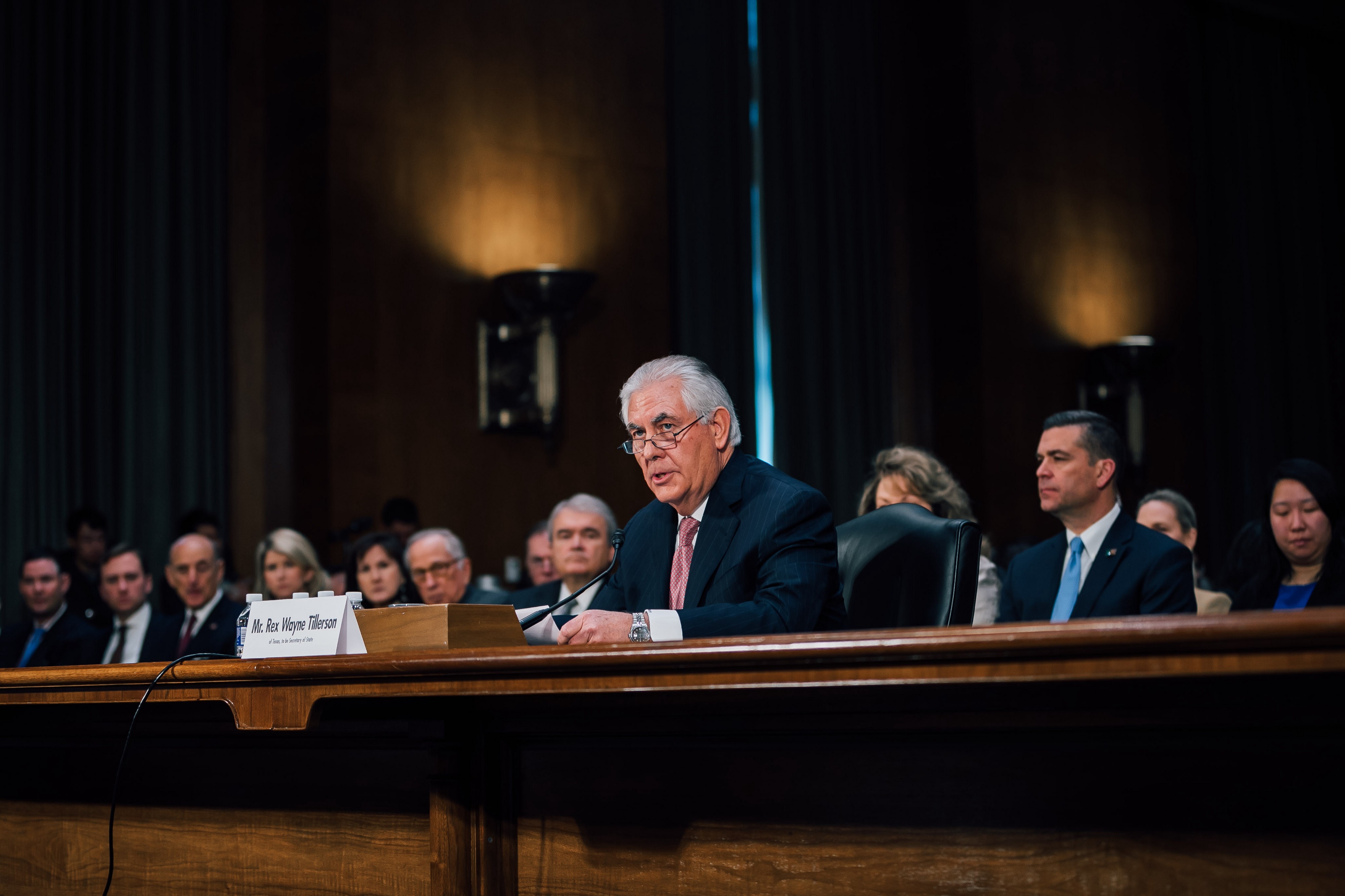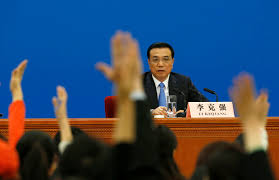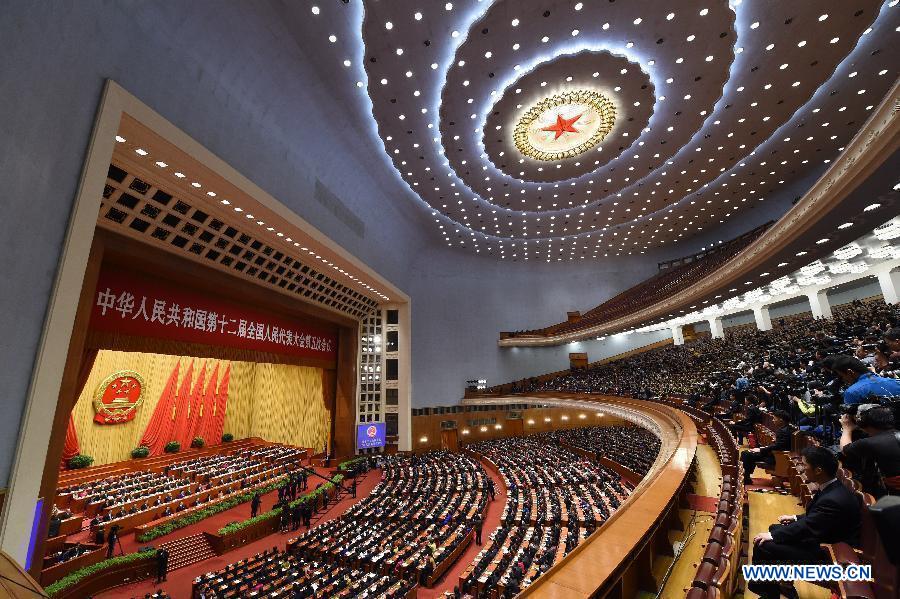
 Sec. Tillerson Visits Asia ahead of Xi-Trump Summit
Sec. Tillerson Visits Asia ahead of Xi-Trump SummitWith U.S. Secretary of State, Rex Tillerson in China, Japan, and South Korea this week, many are wondering what the U.S.'s economic strategy in Asia will be. Sensing this, Premier Li also more forcefully stated, "we don't want a trade war with you, but if one breaks out, your companies would bear the brunt." Beijing is also looking elsewhere to participate in regional free-trade pacts; CNBC reported that China has joined trade talks with member states of the Trans-Pacific Partnership (TPP) in Chile this week. China Daily reported Li's reminder that U.S.-China " bilateral investment and trade had created nearly one million jobs for the U.S., and that the two nations should look and move forward despite challenges in the ties."
North Korea and the THAAD deployment will also be a top agenda item for Tillerson. Axios leaked that April the Xi-Trump summit will take place April 6-7th, which has been confirmed by White House spokesperson Sean Spicer. NYT writes the list of issues that could open a new rift between these two men is long. However, China's media are largely positive about the Xi-Trump summit.
 Premier Li Keqiang Implores Positive Trade Relations with U.S.
Premier Li Keqiang Implores Positive Trade Relations with U.S.Chinese Premier Li Keqiang began his annual news conference at the Liang Hui by first responding to a CNN question on trade relations with the U.S. He said he that a China-U.S. trade war would not make trade "fairer" and was optimistic, saying, "No matter what bumps the China-U.S. relationship may run into, we hope this relationship will continue to move forward in the positive direction." While Li's press conference was the most anticipated event of the Liang Hui, Bloomberg covered several of the higher-profile Chinese officials who may have a chance of ascending to the politburo during the fast-approaching 19th Chinese Communist Party Congress this October. SupChina has an interesting feature from Matt Sheehan on his experience asking Premier Li a question at the Liang Hui in 2015.
 State of the Chinese Economy, Two Sessions Wrap Up
State of the Chinese Economy, Two Sessions Wrap UpChinese economic data released this week show that the real estate sector may be rebouding, fixed asset investment is expanding, and private investment is double what it was in 2016. Sheng Laiyun of China's National Buruea of Statistics credits the growth in private investment to "better implementation of Public-Private Partnership (PPP) projects, which the government has been pushing to attract more private capital into traditionally state-dominated areas," as Reuters reported. China Daily quoted Hu Yuexiao, the Chief Macroeconomic Analyst at Shanghai Securities, who said: "Investment remains China's main growth engine, and its pickup means the Chinese economy has started to stabilize." China's fiscal spending also surged, with spending on public housing gaining 34.5 percent from a year ago, while social welfare and employment expenses rose 25.9 percent. While pointing out that the government is finally getting serious about plugging the loopholes that draw investment dollars away from productive development, Caixin Media Chief Editor Hu Shuli claims, "China's cash has been disappearing down credit black holes in recent years."
 China Social Media WatchThe on-going saga of the impeachment of President Park of Korea, the deployment in Korea of the missile defense system and the Chinese boycott of Korean businesses as a consequence were some of the news items listed by Sina.com as popular for the week, occupying four spots on the top 10 list. A notable item on the list is about the China state TV's report that the fifth-generation of stealth fighter jets have entered into service with China's Air Force. The Diplomat has a more in-depth look into the jets in question J-20, saying it's China's answer to America's J-22 Raptor.
China Social Media WatchThe on-going saga of the impeachment of President Park of Korea, the deployment in Korea of the missile defense system and the Chinese boycott of Korean businesses as a consequence were some of the news items listed by Sina.com as popular for the week, occupying four spots on the top 10 list. A notable item on the list is about the China state TV's report that the fifth-generation of stealth fighter jets have entered into service with China's Air Force. The Diplomat has a more in-depth look into the jets in question J-20, saying it's China's answer to America's J-22 Raptor. On This Day In Chinese History….March, 18th 1950
On This Day In Chinese History….March, 18th 1950On March 18, 1950, thousands of Nationalist troops, supported by air and sea units, attacked the coast of the PRC, capturing the town of Sungmen that lay about 200 miles south of Shanghai. The Nationalists reported that they killed over 2,500 communist troops. Battles between the raiding group and communist forces continued for weeks, but eventually the Nationalist forces were defeated and driven to Taiwan.
Prepared by China-US Focus editorial teams in Hong Kong and New York, this weekly newsletter offers you snap shots of latest trends and developments emerging from China every week, while adding a dose of historical perspective.
